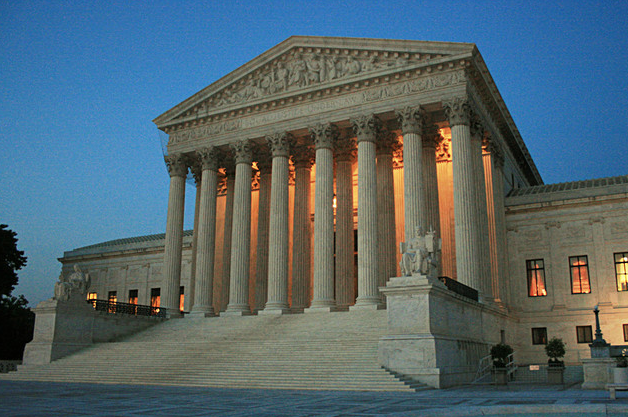
All signs point to the Supreme Court issuing two decisions that will rapidly transform American society as we know it this week.
The majority is likely to grant corporations the right to deny birth control coverage based on their own — completely unscientific — determination that a pill causes an abortion. This decision comes right after a new report shows that women have saved $483 million thanks the Affordable Care Act making contraceptive coverage mandatory in all insurance policies. With corporate personhood expanded to include religious rights, employers objections will soon fill the legal system as the government is forced to determine the sincerity of a legal entity’s beliefs.
But experts are expecting a second even more disastrous ruling this week with the majority opinion in Harris v. Quinn likely to be authored by the notoriously anti-labor Justice Samuel Alito.
Mother Jones‘ Andy Kroll explains:
The outcome in Harris could cut a number of ways. The Supreme Court could uphold the lower court’s decision dismissing the suit—a big union victory. It could strike down fair share fees—the equivalent of Congress passing a national right-to-work bill. (Right-to-work laws ban unions from collecting those fair-share fees from non-members.) Public-employee unions would survive that decision, but it would be a blow. The court could also effectively enact right-to-work nationwide and kneecap a union’s ability to exclusively represent employees in a unionized workplace. That would be catastrophic for public-employee unions.
If there’s any judge who might go that far, it would be Samuel Alito.
This decision is a reminder what happens when you have Republican presidents for 20 out of the last 34 years. George W. Bush taking the presidency after losing the popular vote may be the most singularly significant event in turning this court toward expanding corporate rights while rapidly curtailing voting and workers’ rights.
The Minnesota Law Review looked at the voting records of all the people who have sat on the Court for the last 65 years and found that the two justices most likely to vote in favor of business are — you guessed it — Roberts and Alito.
All of this makes electing another Democrat in 2016 crucial but we cannot forget that President Obama my may have another chance to appoint a justice or two before then.
Some argue that even if Republicans take control of the Senate, there will always be enough votes to get a “mainstream” liberal justice confirmed. Then again, experts thought Republicans probably would have done something to help the economy after leaving President Obama with the worst recession in 60 years. And experts were surprised when the architects of the “do nothing” strategy Eric Cantor and Mitch McConnell both faced primary challenges for not being obstructive enough.
Control of the U.S. Senate is absolutely essential to the president’s modest but crucial climate change regulations. The CEO of First Wind, an utility-scale clean energy developer, recently told an industry conference that he’s a Republican but he’s raising money for Democratic Senate candidates this year.
Keeping Mitch McConnell out of the Majority Leader’s seat is the only way to avoid the manufacture of endless crises you can expect from a Senate majority forced to deal with an even more empowered Ted Cruz.
Conservatives have understood that the Supreme Court is the only battlefield that really matters in American politics. And this week, Democrats may get a shocking reminder of how important control of the presidency and the Senate always is.
[Image via Mark Nester | Flickr]



